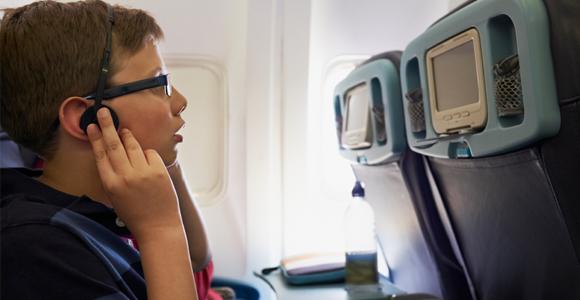Copyright Lawsuit Could Affect In-Flight Entertainment Options


In-flight music offerings could soon be affected by litigation between the record and airline industries over copyrights.
Universal Music Group (UMG) looks as if it’s prepping for warfare against American Airlines over rights to in-flight music. A “standstill agreement” with the music titan is set to expire on November 10, at which time a copyright lawsuit could be launched as the latest front in what is looking more and more like a coordinated effort by music industry heavyweights to garner higher revenues from the biggest airlines in the U.S.
In late 2013, Sony filed a lawsuit against United Airlines over copyrights on international flights. An out-of-court settlement was reached, although it has yet to be finalized.
A lawsuit was filed by UMG earlier this year in California against Global Eagle Entertainment and Inflight Productions, suppliers of in-flight music, pertaining to recordings and videos performed by Katy Perry, Taylor Swift, Kanye West and a number of additional artists. Although the complaint did not specifically mention any airlines, it did allege that the noted defendants were “working in concert with various airlines.”
In court documents filed on Monday, American claimed that “UMG has threatened to add American to the California action,” and further reported receiving a subpoena from UMG with “17 sweeping requests for documents going back 10 years.”
American representatives told the judge handling the case:
Given the over breadth of its Requests, and the demand for irrelevant, confidential commercial and/or privileged information and dealings with others, UMG’s strategy is clearly to obtain discovery of American prior to filing a lawsuit against American. This is misuse of the third-party subpoena power and, for this additional reason, this Court should quash the Subpoena
[Photo: iStock]























This is news to me that a settlement has been reached in the Sony/UA lawsuit. UA still does not have the on-demand music back (at least, as of Sept.). Unfortunately, this is yet another example of the problem the music companies have of not learning from the past - I'm talking back to the days of the original Napster and even further back, when they tried to keep individuals from making tapes for their own personal use from music they already bought. Here is another channel Sony, Universal, etc. have for promoting their artists, and they squander all that, and instead opt for lawsuits. I'm not suggesting that those who are using music without paying for it should - but perhaps the music companies should be able to find a way to make money while actually encouraging potential customers to buy their music. Case in point: The on-demand music available on board allows me to test drive, so to speak, new music and artists in a way I can't elsewhere. I can listen to an album (full - not bits and pieces) or artist I haven't heard before, and when I decide I like it, I will buy it once I'm on the ground. It's happened several times, and I can't imagine I'm the only one. That's like free advertising. What better way to promote their products. Not only that - It's a captive audience on board sitting in a plane for many hours, and most can't watch movies for that long. Why don't the music companies learn - license the music for low-cost (if at all), let people try, and they will buy if they like it when they are on the ground. Its not that complicated - you don't need to even need a fancy business degree to come up with an idea like that. It also creates goodwill, with both the business customers (airline/contracted provider of music) and the public. Instead, they charge a ton for licensing, get the negative attention of a lawsuit like this, and generate ill-will with potential customers - yes, regular travelers. People downloaded illegally through Napster back in the day because rather than embracing digital music and give customers an option to buy it, they tried to prevent people from accessing it at all. There are some differences here, obviously, but the same principle applies. Instead of opting for lawsuits, perhaps they should be creating a business environment where millions of $ don't need to be spent on this, and instead, can be used to promote their products which people will be much more willing to buy.